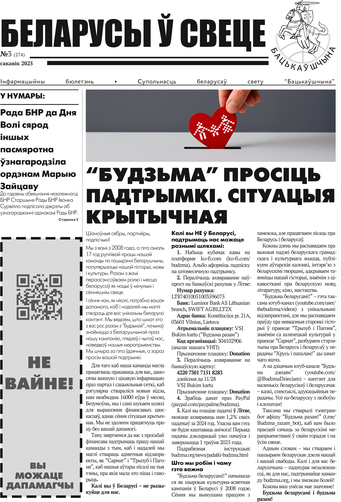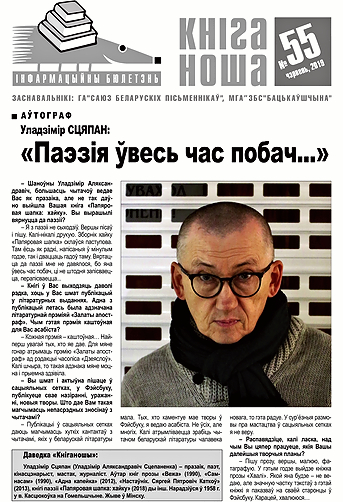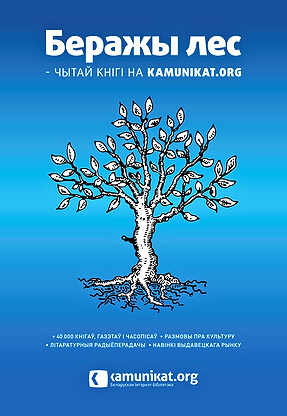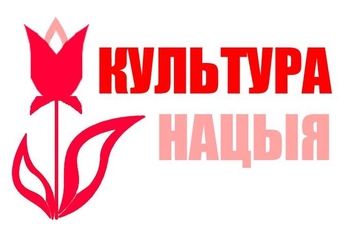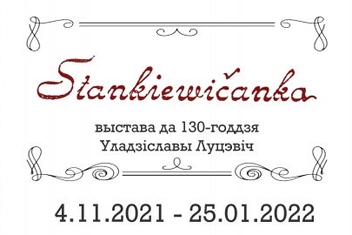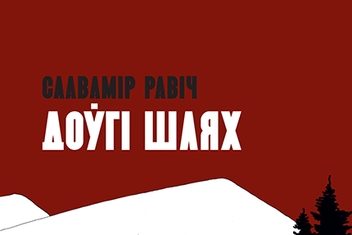Дарагія чытачы!
Рэдакцыя часопіса шчыра віншуе Вас з Днём Волі – 2017. Святкаваньне ў гэтым годзе прайшло ў Беларусі ў вельмі неспрыяльных умовах. Дзяржава ўключыла рэпрэсіўны апарат, каб задушыць свабоднае выказваньне думак, прынізіць годнасьць беларусаў, якія змагаюцца за ўсталяваньне ў краіне дэмакратыі і за ўтварэньне ўмоў для будаўніцтва беларускай нацыі. Мы зычым свабоду нашым людзям і нашай краіне. Жыве Беларусь!
Прыемна адзначыць, што рэдакцыя часопіса «Культура, Нацыя» папоўнілася на наша запрашэньне двумя сябрамі – сп. Вольга Іпатава і сп. Сяргей Панізьнік далучыліся да працы ў рэдакцыі часопіса. Мы шчыра спадзяёмся, што з прыходам вядомых і паважаных літаратараў і грамадскіх дзеячаў актыўнасць часопіса ў беларускім эфіры будзе яшчэ больш заўважнай і яркай.
Як і раней, чарговы нумар часопіса пачынаецца са «Стратэгіі развіцьця беларускай нацыі». «Стратэгія» дапоўнена на прапановы сяброў Асіповіцкай арганізацыі Таварыства беларускай мовы. Большасць сяброў гэтай арганізацыі (20 з 24 сяброў) згодны з асноўнымі палажэньнямі «Стратэгіі». Мы запрашаем чытачоў дасылаць свае водгукі і прапановы па паляпшэньню зьместу «Стратэгіі» на адрас: chasopis.sakavik@hotmail.com. Таксама просім зьвярнуць увагу на апытаньне пра нейтральнасць Беларусі, якое размешчана на нашым вэб-сайце www.sakavik.net.
Нейтральнасць Беларусі з’яўляецца адным з вызначальных момантаў абмяркоўваемай «Стратэгіі». Будзем удзячны, калі вы знойдзеце пару хвілін, каб выказаць свае адносіны да магчымасці нейтральнага стану Беларусі.
Рэдакцыя часопіса просіць арганізацыі, якія ў асноўным згодны з палажэньнямі Стратэгіі, далучацца да выкананьня яе задач.
У часопісе зьмешчаны параўнальны агляд падзей, якія адбываліся ў перыяды першага і апошняга абвяшчэньня незалежнасьці краіны (1917-1923 і 1988-1994, адпаведна). У абодвух выпадках абвяшчэньні незалежнасці не прывялі да станоўчага фіналу – будаўніцтва сапраўднай нацыянальнай дзяржавы. Так, дзяржаўнасць адбылася, а вось нацыянальная дзяржава, на жаль, яшчэ не ўсталявалася. Выдавалася цікавым заглянуць на пачатак і канец стагоддзя з тым каб прааналізаваць станоўчыя і адмоўныя моманты, баланс якіх быў не на карысць поўнавартаснай рэалізацыі нацыянальнай ідэі. Зрабіць такі параўнальны аналіз падштурхнулі таксама і паразы нацыянальна-дэмакратычных сіл у апошнія два дзесяцігоддзі, прычыны такіх параз ёсць даволі агульнымі з тымі, што назіраліся ў перыяды першага і апошняга абвяшчэньня незалежнасці. Зроблены аналіз высьвятляе шэраг падабенстваў ў гэтыя перыяды, якія ўключаюць вялікае жаданьне ў рэалізацыі нацыянальнай ідэі ў створаных спрыяльных гістарычных умовах, так і, у той жа час, адсутнасць агульнай стратэгіі і адзінства ў падыходах да вырашэньня нацыянальнага пытаньня, а таксама некрытычную па велічыні падтрымку нацыянальных ідэй насельніцтвам.
Можна пагадзіцца са сп. А. Мілінкевічам, што трэба рабіць работу над памылкамі, але не толькі работу над памылкамі падзей сьнежня 2010 года, а для ўсяго найноўшага перыяда (1990-2017). Магчыма, што канструктыўная крытыка, зробленая ў аглядзе, можа быць карыснай для тых беларускіх лідэраў, якія яшчэ не знайшлі ў сабе магчымасці з’яднацца і праводзіць рэалізацыю сваіх ідэй і задач у рамках агульнай стратэгіі. Такую стратэгію трэба яшчэ ўзгадніць і кіравацца ёю ў практычнай дзейнасці па нацыянальнай асьвеце насельніцтва, бо асьвета ёсць ключом для збудаваньня нацыянальнай дзяржавы. Асаблівасцю вырашэньня нацыянальнай ідэі ў Беларусі з’яўляецца тое, што яно павінна праводзіцца адначасова з вырашэннем палітычных і дэмакратычных праблем.
У часопісе зьмешчана кароткая анатацыя да двух кніг, выдадзеных на Пастаўшчыне – сп. Янам Драўніцкім “Пастаўская беларуская настаўніцкая семінарыя”. 1942 – 1944. – “Сумежжа”, Паставы, 2016, 104 с. і сп. Вадзімам Шышко “Беларускае войска ўзору 2004-га года. Погляд знутры”. Логвінаў, Мінск, 2016, 145 с. Выхад гэтых кніг, напісаных тутэйшымі людзьмі, сведчыць аб тым, што беларускі народ паціху абуджаецца – гэта добры знак для беларускай будучыні.
У канцы часопіса зьмешчаны календар важнейшых дат у красавіку-маі і на год.
Прыемнага чытаньня.
Рэдактар часопіса, Пётра Мурзёнак
Editorial (magazine “CULTURE, NATION”, March 2017, issue 17, pp. 8-12)
Piotra Murzionak: Preface to the 17th issue of “Culture, Nation”, March 2017
Dear readers!
Editorial Board congratulates you on the Day of Freedom – 2017. The celebration took place this year in Belarus under extremely adverse conditions. States have included the repressive apparatus to stifle free expression of ideas, and to debase the Belarusians who are fighting for the establishment of democracy in the country and for the formation of conditions for the building of the Belarusian nation. We wish freedom to our people and to our country. Long Live Belarus!
It is a pleasure to note that the Editorial Board of the magazine “Culture Nation” enriched by two members – Mrs. Wolga Ipatava and Mr. Sergey Paniznik. We sincerely hope that so well-known and respected writers and public figures make the magazine activity in the Belarusian ether even more visible and bright.
As before, every issue of the magazine begins with the “Strategy of development of the Belarusian nation”. “The Strategy” is supplemented now by the proposals of Asipovichy friends of the Belarusian Language Society. Most of the members of the organization (20 of 24 friends) agree with the basic provisions of “Strategy”. We invite other readers to send their comments and suggestions to improve the content of “Strategy” at: chasopis.sakavik@hotmail.com.
Please pay attention to a survey on the neutrality of Belarus; the survey is located on our website www.sakavik.net. The neutrality of Belarus is one of the defining moments of “Strategy”. We would be grateful if you can find a few minutes to express their attitude regarding the possibility of a neutral state of Belarus.
We ask organizations who basically agree with the provisions of “Strategy”, to join the implementation of its tasks. At present, the following organizations are already joined to it: the magazine “Culture, Nation”, the Belarusian Language Society.
In this issue, a comparative overview of the events which took place during the first and the last the country’s independence periods (1917-1923 and 1988-1994, respectively) is presented. In both cases, the declaration of independence did not lead to a positive ending – the building of the real national state. So, the statehood took place, but the real nation-state, unfortunately, has not yet been established. It was of interest to look at the beginning and the end of the XX century in order to analyze the positive and negative moments, the balance of which was not in favor of the full implementation of the national idea. A comparative analysis was also prompted by the defeat of the national-democratic forces in the past two decades, the causes of these failures have a fairly common with those that occurred during the first and the last declaration of independence. The analysis finds a number of similarities in those periods, which include a great desire in the realization of the national idea created by favorable historical conditions, and, at the same time, the lack of an overall strategy and unity in the approach to the solution of the national ideas as well as a non-critical support for national ideas by Belarusian population.
We can agree with Mr. A. Milinkevich, that we need to do homework on the failures not only that happened in December 2010, but for all of the latest period (1990-2017). It is a hope that constructive criticism made in the review might be useful for those Belarusian leaders who have not yet found the opportunity to unite and carry out the implementation of their ideas and tasks within the overall common strategy. Such a strategy must yet been agreed aiming to use it in the practice for national education of the population, since education has a key to the construction of the nation-state. A feature of the solution of the national idea in Belarus is that it should be carried out simultaneously with the solution of political and democratic issues. The magazine contains a brief summary (annotations) of two books published in Pastavy region by Jan Draunitski “Belarusian teachers’ seminary in Pastavy”. 1942 – 1944 – “Sumezza”, Pastavy, 2016, 104 p. and by Vadim Shyshko “Belarusian army of 2004 period. Look from inside”. Logvinau, Minsk, 2016, 145 p. The output of these books written by local people suggests that the Belarusian people gradually awakened – that’s a good sign for the future of Belarus. At the end of the magazine the most important calendar dates in April and May and over 2017 year are placed.
Enjoy your reading.
Editor, Piotra Murzionak
